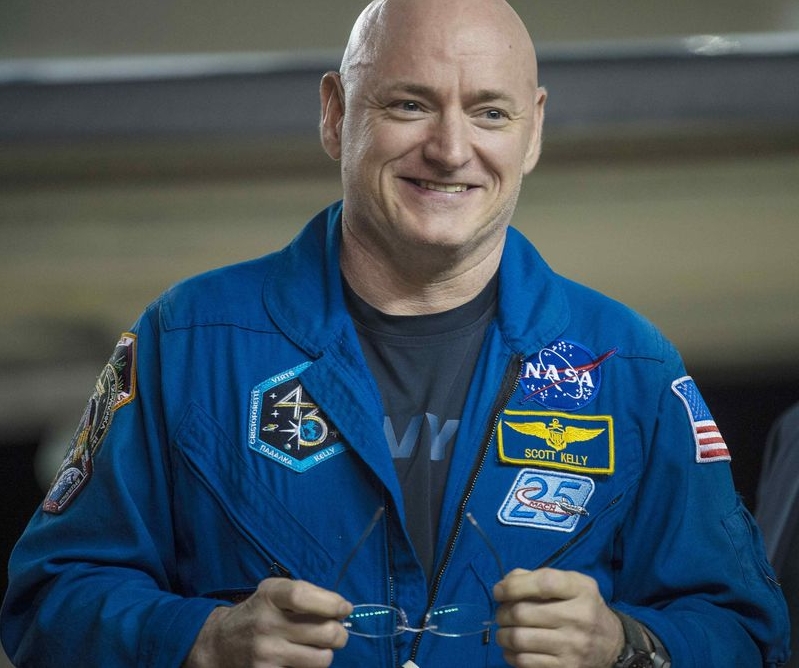
After spending 340 days in outer space, NASA Astronaut Scott Kelly is back here on Earth and he has an interesting story to tell. Kelly was surprised at the length of the mission and admitted, "maybe occasionally you do go bananas." Thankfully, he kept his sanity by using Microsoft's HoloLens on the International Space Station.
Kelly tried a game called RoboRaid, where players have to fight off incoming swarms of invading aliens. The astronaut described the game, with a grin, was "kinda fun." Psychologists say spending an extended amount of time in outer space can affect person's mental health, so it is important for Kelly to have a recreational time.
Tech Times reported some of Microsoft's HoloLen's were shipped to the space station for testing. At a press conference, Kelly said the device "worked great." He was also surprised in the features of the technology.
Compare to other virtual reality headsets, such as the Oculus Rift, Microsoft's HoloLens paints images around the actual environment of its users. The device is doing it by projecting light directly onto the user's eyeball and literally augmenting the images to their vision.
Check out what Kelly played at the International Space Station below:
While Kelly is at outer space, he experienced physical changes in his body. His skin became hypersensitive because it didn't come into contact with other things. His spine also expanded, though it retracted and returned to its normal length when he returned here on Earth.
Kelly, 52, spent a total of 340 days in space and traveled nearly 144 million miles. The astronaut came home with a wealth of scientific data that researchers will analyze to understand the effects of space radiation on human body.
Meanwhile, Microsoft HoloLens is one of the much-awaited VR devices in the market. The device is equipped with a custom-built Microsoft Holographic Processing Unit that has 32-bit Intel CPU, 2GB of RAM, and 64GB of onboard solid-state storage. Users can enjoy its awesome features by up to three hours of active usage time.
Furthermore, the VR headset boasts a total of six ultra-clear cameras. Four cameras survey environment with one that estimates depth-of-field, and two more that capture user's video.
HoloLens Development Edition is available for pre-orders. Visit the HoloLens site for details on how to get it. The VR devices will be shipped in the US and Canada starting 30 March, with no date on a UK or EU rollout yet given.







